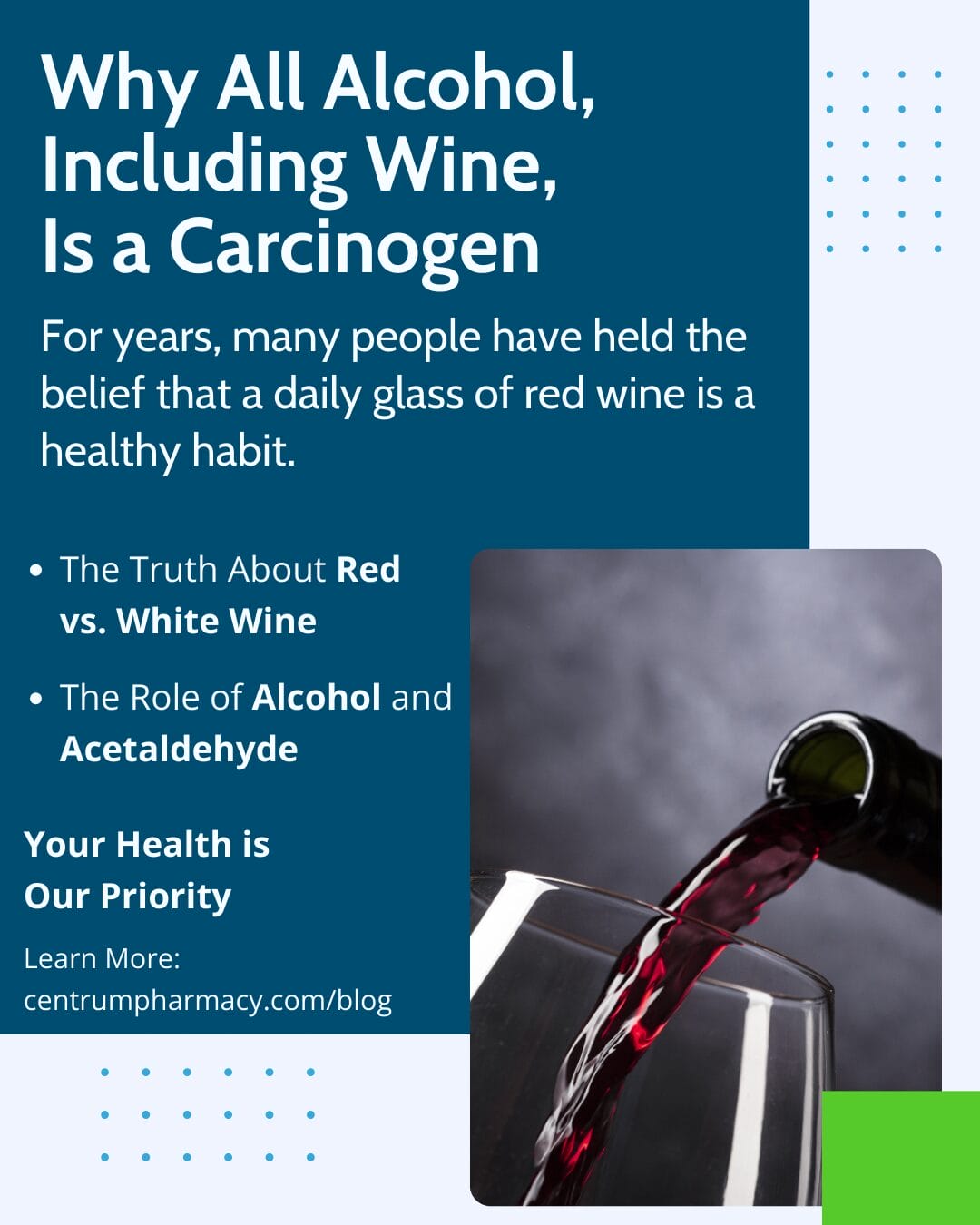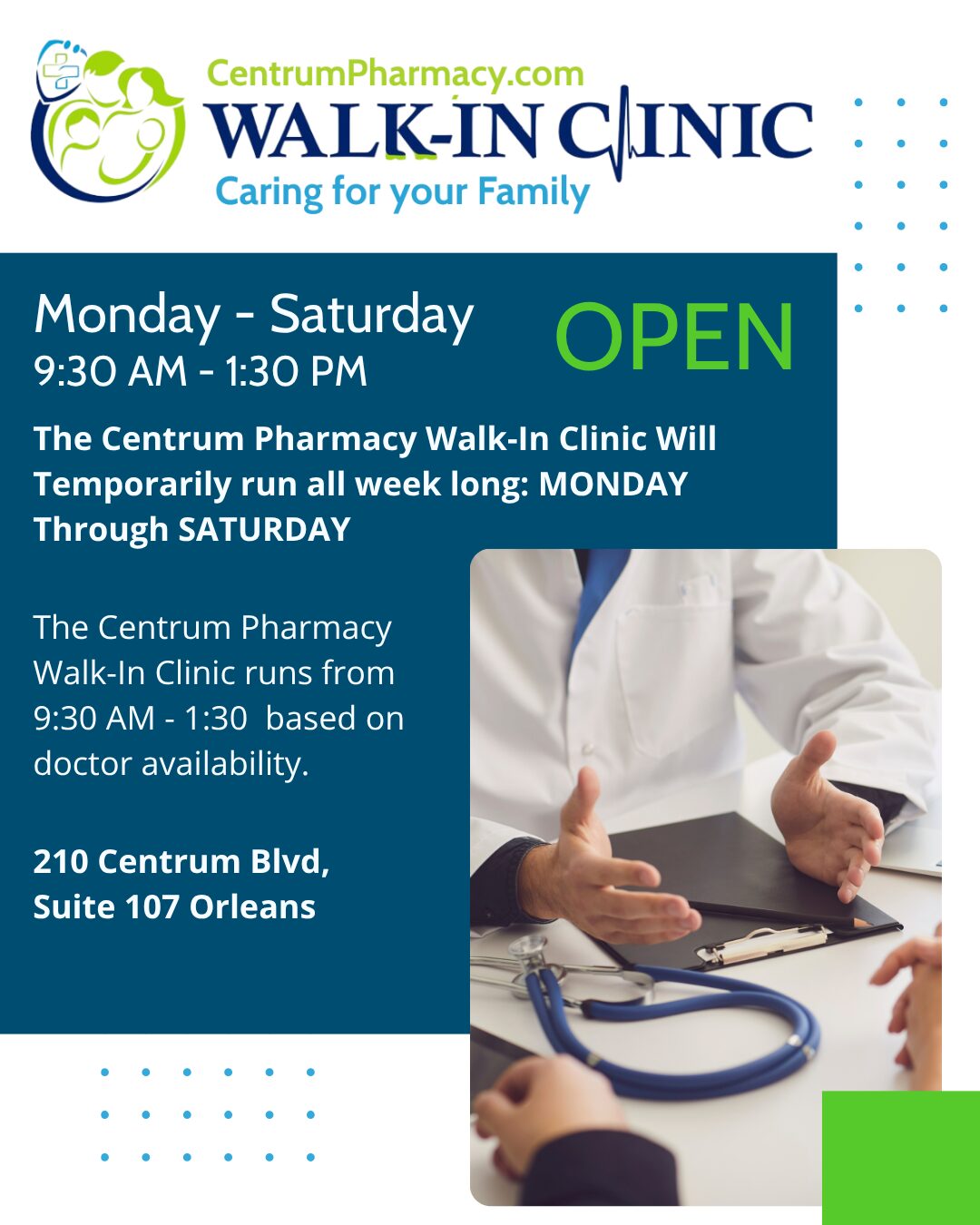For years, many people have held the belief that a daily glass of red wine is a healthy habit, often citing its antioxidant content as a protective factor. However, a recent study published in the journal Nutrients challenges this popular notion. At Centrum Pharmacy, we are committed to providing our patients with accurate, evidence-based information to help you make informed health decisions. The core message from this new research is clear: alcohol is a carcinogen, and any regular consumption increases your risk of developing cancer.
The Truth About Red vs. White Wine
The new study, a systematic review and meta-analysis of 42 observational studies, aimed to determine if there was a difference in cancer risk between red and white wine. The findings were quite conclusive:
- No Significant Difference in Overall Risk: The study found no significant difference in the overall cancer risk associated with drinking red wine versus white wine.
- Increased Breast Cancer Risk: Both types of wine were associated with an increased risk of breast cancer in similar proportions.
- White Wine and Skin Cancer: White wine consumption was linked to a 22% increased risk of skin cancer compared to red wine. The reasons for this are not fully understood, but the authors suggest a possible link to high-risk behaviors like artificial tanning.
A key takeaway from the research is that a daily consumption of just 10 grams of alcohol (approximately one glass of wine) is associated with a 5% increase in overall cancer risk. This finding directly contradicts the idea that red wine is a “healthier” option.
The Role of Alcohol and Acetaldehyde
While red wine does contain beneficial antioxidants like resveratrol, the authors of the study emphasize a critical point: the well-established carcinogenic effects of alcohol outweigh any potential benefits from these compounds. Alcohol is rapidly metabolized in the body into a toxic substance called acetaldehyde, which can damage DNA and lead to cancer. The rapid metabolization of alcohol may effectively cancel out the protective effects of any antioxidants present.
Ultimately, the type of alcohol you drink matters less than the fact that you are drinking it at all. The scientific consensus is firm: there is no safe level of alcohol consumption when it comes to cancer risk.
Your Health is Our Priority
At Centrum Pharmacy, we encourage a proactive approach to your health. Advising limited consumption or total abstinence is the most prudent strategy for reducing cancer risk. We are here to provide you with reliable health information and support. If you have questions about cancer prevention, lifestyle choices, or how your habits may impact your health, please speak with one of our knowledgeable pharmacists.
Stay Connected with Centrum Pharmacy!
If you found this article helpful, don’t forget to like, share, and Follow to stay up to date on our latest health tips, pharmacy updates, and wellness advice.
Come for the Convenience, Stay for the Service.
Caring for Your Family Since 1999
Disclaimer: The medical information on this site is provided as an information resource only and is not to be used or relied on for any diagnostic or treatment purposes. This information does not substitute for professional diagnosis and treatment. Please do not initiate, modify, or discontinue any treatment, medication, or supplement solely based on this information. Always seek the advice of your healthcare provider first. Full Disclaimer.




